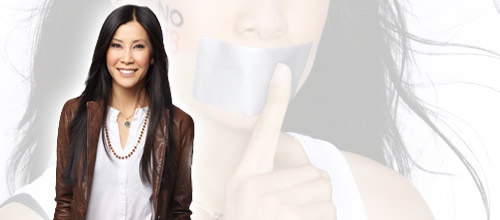
Lisa Ling’s America
 A provocative chat with one of television’s most provocative journalists
A provocative chat with one of television’s most provocative journalists
by Blase DiStefano •
Photo by Jaime Cary
Lisa Ling, probably best known for her stint as a co-host on The View, actually began her hosting duties at the tender age of 15 on Scratch, a nationally syndicated teen show. She moved on to Channel One News when she was 18, and joined The View at the age of 26.
Ling later became host and reporter for National Geographic Explorer, and it was during that time that she traveled undercover to North Korea to film the work of a Nepalese eye doctor, posing as part of his medical team. Although she returned safely, Ling’s sister, Laura, also a journalist, wasn’t so lucky. In 2009, Laura was imprisoned in North Korea, along with fellow Current TV reporter Euna Lee, for charges “including illegally crossing the border from China.” Though they were sentenced to 12 years of imprisonment, they were released after five months, thanks to Bill Clinton’s “exhaustive conversation” with North Korea’s dictator Kim Jong Il. About a year ago, the two sisters published Somewhere Inside: One Sister’s Captivity in North Korea and the Other’s Fight to Bring Her Home. Ling says her sister is now doing “great.”
Ling had become an investigative reporter for The Oprah Winfrey Show after her National Geographic job, and she now has her own show on OWN, Oprah Winfrey’s new network. “The fact that she’s able to maintain such a unique kind of integrity in the midst of all the lowest-common-denominator programming on TV is pretty amazing,” Ling says about Winfrey. OWN is the home of Ling’s current project, a six-part Tuesday-night series entitled Our America. Ling’s version of our America is peopled with faith healers, transgender people, gays who want to pray away their homosexuality, heroin addicts, pedophiles, and Internet love-seekers.
She talks with OutSmart particularly about two of the six Our America segments, “Pray the Gay Away” and “Transgender Lives.”
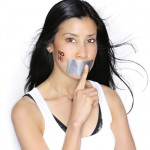
Blase DiStefano: Hey, Lisa, how are you tonight?
Lisa Ling: I’m well. How are you doing? Thank you so much for your patience. I’m actually in a field in upstate New York, so my whole team and I were in a restaurant, and I didn’t have a private space, so thanks for delaying a little bit.
I don’t mind at all. I thank you for doing this. Are you still overwhelmed? [On her website she wrote that she hadn’t updated because she was “extremely overwhelmed.”] Well, the job requires a lot of travel, which is challenging, but I am so proud of the stories and what Oprah and OWN are allowing me to do, so it’s worth it. It’s really hard sometimes. At least we’re working, right?
That’s so true. I wanted to start by asking if there was one story that you’ve done over the years that stands out as particularly shocking.
The story that propelled me to want to tell stories is when I was in Afghanistan when I was 21 years old and covering the civil war there. What I saw there so shocked me that I couldn’t turn my back and pretend that it didn’t exist. It provoked me to want to try to communicate stories to people.
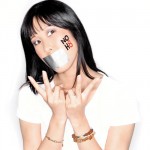
This interview runs in our March issue, and since March is Women’s History Month, which woman comes to mind as far as women’s history is concerned?
There are so many women who were pioneers.
What about somebody in your field?
I know you’re asking about women in history, and even though she’s still alive, Barbara Walters really did pave the way for women in broadcast journalism, and I was so lucky to have been able to hear straight from her mouth the challenges that she had to overcome as a young correspondent in the field. And, honestly, if it weren’t for the battles she fought so valiantly, I don’t know that I would be able to be doing what I’m doing today. She really did pave the way, and no matter what you think about her, you can’t deny that.
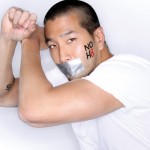
And Oprah, she paved the way on so many levels, not just in television. The fact that she’s able to maintain such a unique kind of integrity in the midst of all the lowest-common-denominator programming on TV is pretty amazing.
Do you remember the first gay person you ever met?
Absolutely. In middle school [in the late ’80s] there was a boy named Jason Hunt. We all knew he was gay, and he was beaten up probably every other day … God, I get emotional even thinking about it, because he was such a fighter and a lovely, lovely person. He was beaten up because he was effeminate. He would never back down. Sometimes I wished he would back down. He was so ballsy.
I remember specific times when he was getting beaten up. I think that’s when I became such a fierce advocate for gay rights. He was just such a love.
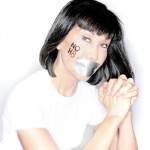
Was there anything other than his effeminacy?
He would sometimes remark that he thought certain guys were cute, and that was at a time when guys just didn’t do that ’cause other guys would think they were gay.
To be honest with you, throughout my childhood and even throughout high school, I never knew anyone who was out. People came out later on, but no one would come out when I was growing up, and that’s why I feel so heartened to learn about so many gay and lesbian clubs on high school campuses. There’s still so far to go, but many schools have gay and lesbian student alliances and clubs. There are resources, there are places you can go. I just wish Jason would have had the opportunity. At the time, I can’t even imagine where Jason would go. I don’t think he would have been able to go to his own parents.
This is sort of in the same vein, but what are your views on gay marriage?
To me, so many people fantasize about being married to the person they love, and if that’s your desire, you should be able to do it, no matter who it is…. For me, I wouldn’t begrudge you for how you feel or your opinion—I just believe in love, period.
About your wedding: you wore a red wedding dress when you married Paul Song. I wondered what was behind that.
To be honest with you, people think I wore red because it’s a traditional Chinese color, but I just didn’t want to wear a traditional white wedding dress, and my friend Vivienne Tam loaned me that dress. It could have been purple or yellow, it wouldn’t have mattered. It’s a beautiful dress, and we just wanted to be a little different.
How’s your husband?
He’s great. He’s phenomenal. One of the things I love about him is that he is such a fierce gay rights advocate. He has been a strong Christian all his life, so when people spew Bible verses at him, he can spew them right back.
Speaking of the Bible, wasn’t there something about you and Jesus and People magazine?
People magazine asked me if there was one historical figure you could meet, who would it be and what would you say to him? My answer was Jesus, and I would ask him, “What do you really think about gay people?” I can’t speak for Jesus, but people often seem to think that they can. [Both laugh]
Damn it, Jesus, how could you have left the world with so many unanswered questions? I’m not a religious person, but the more I learn about Jesus, the more I think what an amazing person he was. He was just all about love, so when I hear about any condemnation and people thinking other people are wrong or judging other people, I’m thinking, WhichGod are you worshipping?
I saw a TV special about the Gospels, and I think it was at the Council of Nicaea in the second century that the Gospel of Mary Magdalene was taken out of the Bible.
Honestly, Blase, this is one of my favorite subjects, and I will tell you there was a female apostle named Junia, there’s a Book of Thomas, the Book of Judas, the Book of Mary. The four gospels were chosen for a reason, and they were completely massaged. I’m not going to condemn religion, because I don’t want to condemn anyone, but I’ve not only studied the Bible, but I study religious texts and I study analyses of the Bible, and I just think people should do their homework. People don’t take time to read the Bible—they just listen to what people say the Bible says.
So how did Our America come about?
Originally, I was asked to do documentaries about different American subcultures. Initially, the title was Inside with Lisa Ling, but as I immersed myself in these different American subcultures, I felt like we should be taking real ownership and re-defining what it means to be an American, and that includes beautiful stories and moving stories, but in some cases, it includes challenging stories on people.
Were you in discussion with Oprah about the show?
I was in discussion with the executives at OWN, but, yes, Oprah and I did talk about it. Oprah’s been my biggest advocate, and I don’t think I’d be able to do this kind of work for anyone other than Oprah and her network.
Regarding “Pray the Gay Away,” after you interviewed Alan Chambers [president of Exodus International], what were your feelings about him and Exodus International?
Well, to be honest with you, I went into Exodus kind of looking for a fight. But I actually found people who were quite loving and kind. If you fundamentally don’t think homosexuality is in line with your faith and you think you can live a straight lifestyle with a wife or a husband, then that’s your prerogative. If you feel you can do that and that’s what you want to do, I’m not gonna tell you that you’re wrong for doing it. My problem is when people condemn other people for who they are.
I got a totally different view of ex-gays and how they’re people just like us, trying to find their way. I really appreciated seeing it. It actually made me feel less, for lack of a better word, less…
Judgmental?
Yes.
If Alan Chambers is really happy, who am I to tell him that he’s wrong, or who am I to make a judgment call on him? If he’s living the life he wants to live, then more power to him.
I oftentimes have to catch myself when I think “he’s wrong.” That’s just my opinion. How do I know what goes on in his life?
I think there is a lot of judgment in the gay community, too. Because the gay community has been so burned by evangelicals and by the church, I can understand why people who are gay are overly sensitive. But I do think some of that sensitivity manifests itself in a different kind of judgment. Like the gay Christians in the Naming Project [faith-based youth group]—they are as condemned by gay people for maintaining their Christian faith as they are by people who think they are wrong for being gay.
But what runs through the ex-gay movement is [Houston mega-pastor] Joel Osteen’s common quote, “Homosexuality is not God’s best.”
The way I look at it is, the most important thing that I think [the Bible] says is “God is love.” That’s to me the most important, the most factual part of the Bible.
Is there anything that stands out about the time you spent filming with the Naming Project?
I have so many gay friends whose lives have been affected because of the church’s condemnation, and to see these young kids wearing their rainbows and praising God—it’s such a profound example of ultimate faith. You can still love God despite the fact that the church condemns you. But to me, the kids have some of the strongest faith of anyone I know.
I have gay friends who if you mention the word “God” or “Christian,” they will be revolted. They’ve been so burned. How do you accept or acknowledge an entire spiritual sect that believes you’re fundamentally wrong?
My hope with this show is that both sides will be able to just think differently for a moment, just walk in the shoes of the other person in a real sense. So often when this debate comes up about “Does God love gay people?” or whatever, the talking heads fight it out, but I think [the “Pray the Gay Away” episode of Our America is] an example of real love on both sides. In the end I actually really admire what Alan Chambers said, that he believes there are gay people in heaven. That was huge.
I went into it really wanting to pick a fight, and I actually felt so very enlightened in the end. I felt grateful that they really opened up.
The “Transgender Lives” episode was phenomenal. Can you tell me a little bit about Hailey and her parents?
Hailey is the six-year-old girl who was born Harry. Unlike so many parents who would freak out and force their child to remain the gender they were born, Hailey’s parents recognized that their daughter was born in the wrong body, that even though he was born a biological boy there was nothing about their son Harry that was a boy, except for his body parts.
I was surprised that the parents could be so compassionate and open.
That is the ultimate love. Hailey’s father, Steve, is just a blue-collar, New England Southern Methodist guy. For him to be so sincere … Hailey changed everything he was raised believing…. We got so lucky with all of those characters. I’m so in awe of all of them.
Then there is Michelle [she was born a man and did not physically transition until some years after marrying]: she assumed that [her wife] Deb and the kids would not be there for her after the operation. But they stayed.
She obviously was so tortured that she was willing to risk her whole family. Otherwise, she may have committed suicide.
If you try to put yourself in that position, do you think you might have that same courage?
If my husband [transitioned], would I stay? I don’t know the answer to that. I’m certain it was not an easily reached answer for that family.
And none of those people wanted publicity. They were so conflicted about so many things. Each one of them so strongly believed that if their stories helped change people’s perspectives or raises awareness, then it’s worth it. It’s very risky for them to do.
Did you have any preconceived ideas about transgender people before you worked on this?
I have a dear friend who is a transgender person—Denise was born Travis. Denise’s mother kicked Travis out when he was 13 years old. She didn’t know what to do with a gay son, and so Travis assumed the name Denise and wound up living on the streets and ended up having to prostitute herself for years and years just to survive. So I’ve always had a heart for this story. My friend Denise, there’s nothing manly about her. She has a penis, but she’s such a girl. If she had the money, she probably would have gone all the way, but she’s learned how to deal with her body.
Just one more question: if you woke up tomorrow and realized you were gay, who would be your same-sex fantasy?
Ooo. Ooo. [Pause] I used to think Queen Latifah, ’cause I definitely like kind of a tough girl, and she’s cool. But she’s very feminine at the same time.
I’m trying to think. I like badass girls, but I wouldn’t like a girl who is way more attractive than me. [Both laugh] [Pause] I have my answer, I have my answer. Let’s erase the Queen Latifah part, ’cause that was a long time ago. Hands down, it would be Rachel Maddow. I love her. I find her far more attractive than most men on so many levels. I just think she’s incredible.
Our America with Lisa Ling airs Tuesdays at 9 p.m. on OWN (Oprah Winfrey Network). The “Transgender Lives” episode debuted in February, but will be repeated in March. The “Pray the Gay Away” episode airs March 8. For more information, visit oprah.com/own.










